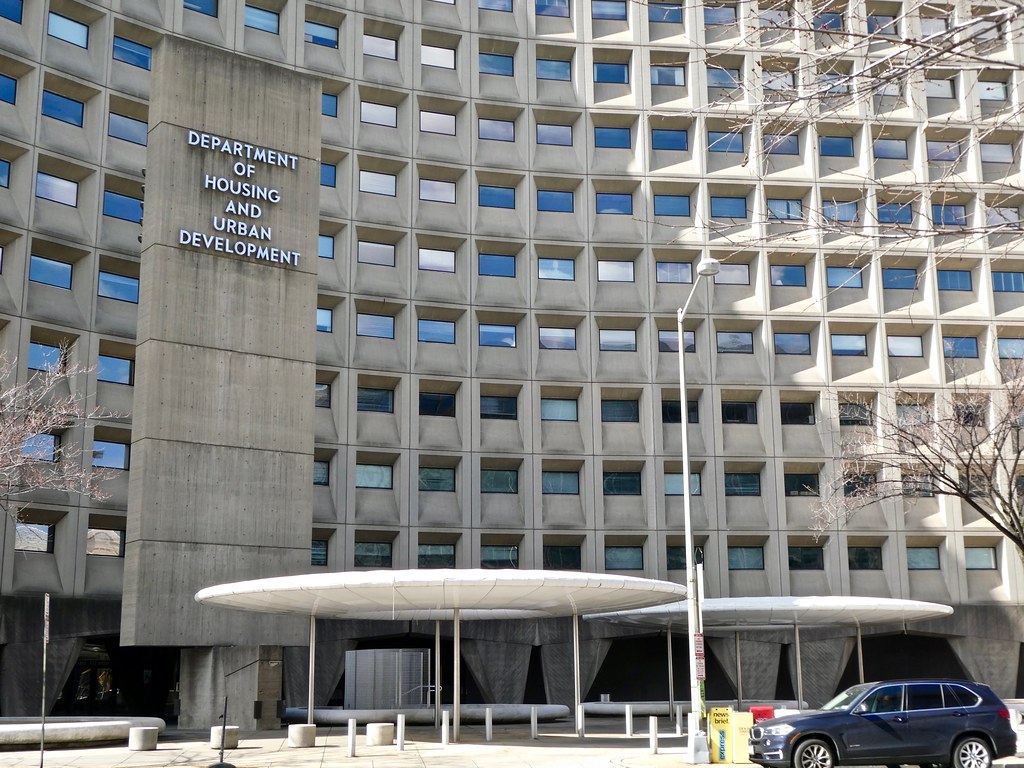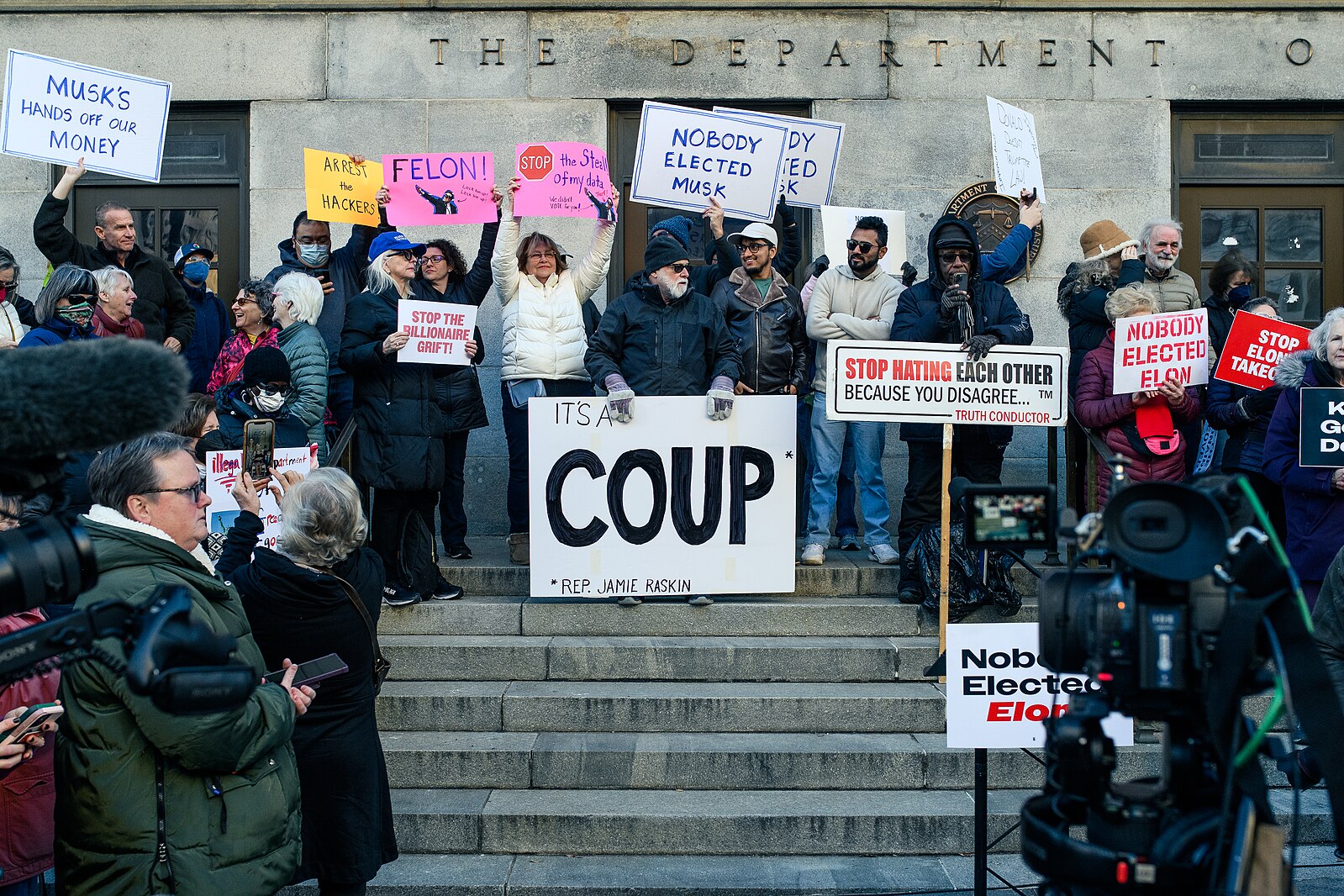
May 13, 2025
Chaos Atop the FAA and at Newark International
As the chaos at Newark airport continues, the FAA is losing its leaders to deferred resignation and Secretary Duffy deflects blame. Meanwhile, United CEO works with traditional media to scapegoat Newark’s traumatized workers.

April 07, 2025
Federal Understaffing Spotlight: Internal Revenue Service (IRS)
IRS understaffing could undermine tax collection, audits, and public service.

April 07, 2025
Federal Understaffing Spotlight: Department of Interior
Department of Interior understaffing has been threatening environmental protection efforts and the health of marginalized communities.
April 02, 2025 | Revolving Door Project Newsletter
Polluters Get A Presidential Exemption From The Law
Are you a highly polluting industrial facility? Maybe a coal-fired power plant, or a coke oven, or a chemical manufacturer, or a commercial sterilizer? Do your neighbors complain about the eye-watering, throat-choking clouds that billow from your stacks? Are you tired of being the bad guy just because your operations emit arsenic, ethylene oxide, mercury, and lead into the air and water, which can cause cancer, brain defects, and other illnesses? Well, President Trump has got your back.

March 26, 2025 | The American Prospect
An Abundance of Credulity
In the months before the re-election of Donald Trump precipitated our rapid descent into authoritarianism, two books were being written about the idea that progressivism went astray in the 1960s and 1970s. In Abundance, Ezra Klein and Derek Thompson describe a drift into a “politics of scarcity,” and in Why Nothing Works, Marc Dunkelman calls it a “cultural aversion to power.” Both books ask a pertinent question: Why doesn’t the government do big, bold things, quickly, to address the pressing issues of our time? We have an abundance of viewpoints and veto points, they argue, but a shortage of affordable housing and transmission lines. Something’s got to give. The unstated question, of course, is who must give.

March 19, 2025 | The American Prospect
Op-Ed Climate and EnvironmentCongressional OversightDOGEEconomic PolicyElon MuskExecutive BranchGovernanceGovernment CapacityHousingTrump 2.0
DOGE Is Going to Kill a Lot of Americans
The Democratic Party could spell this out clearly and consistently for voters.

March 12, 2025
Federal Understaffing Spotlight: Housing and Urban Development
HUD’s enforcement power and ability to carry out federal programs have been weakened for years by staffing shortages. This blog overviews the key reasons why HUD needs more staff.

March 12, 2025
Federal Understaffing Spotlight: Federal Trade Commission
Even under a friendlier administration, the FTC has not been given a budget that would fully allow the agency to fulfill its mission. This blog overviews some of the enforcement responsibilities the FTC could better fulfill with more staff.

March 12, 2025
Federal Understaffing Spotlight: Environmental Protection Agency
During the Biden administration, EPA workers reported a staffing crisis at the agency. The Trump administration now wants to drastically decrease its work force. This blog overviews the impacts of an understaffed EPA on the health and wellbeing of our environment and communities.

March 12, 2025
Federal Understaffing Spotlight: Social Security Administration
The SSA has been in the midst of a severe staffing crisis for years. Even though SSA staffing had already been decreasing under Biden, Trump’s cost-cutting administration has moved to slash its staff even more than it has already been reduced. This blog overviews why the SSA needs more staff.

March 12, 2025
Republicans Reveal Their True Intentions At The 11th Hour
Even on the brink of a shutdown, the GOP remains committed to shutting down the federal government.

March 12, 2025
DOGE Agent: Noah Peters
Musk Connections: Unknown
Other Corporate Affiliations: Partner at Brewer Attorneys & Counselors, Counsel at Bailey and Ehrenberg PLLC
DOGE Deployment: Senior Advisor, Office of Personnel Management (OPM)

March 10, 2025
The Would-Be Pawns Sacrificing Their Own Civil Service Jobs
Trump’s hollowing out of the public service isn’t just about the massive illegal removals of workers – career officials are walking out of agencies of their own accord, as the Trump admin forces them to choose between following the law or following Trump’s illegal orders.

March 07, 2025
Trump’s Attacks on Weather and Climate Science Put Us All In Danger
The National Oceanic and Atmospheric Administration (NOAA) is the backbone of climate and weather research and information in the United States. Its annual budget is under $7 billion, and the value of the weather information that it shares with the public is estimated to be over $100 billion annually. That means the American taxpayer gets a more than fourteen-fold return on investment. (Now that’s government efficiency, contrary to the claims of DOGE and its sympathizers about eliminating government bloat.)

March 05, 2025 | Revolving Door Project Newsletter
The Government Shutdown is Already Here. Congressional Democrats need to act like it.
There’s a lot of back-and-forth right now about whether Congressional Democrats should, effectively, negotiate with terrorists. It goes like this: Congress has until March 14 to pass a bill funding the government to avoid a government shutdown. Republicans need some Democrats to vote in favor of the bill in order to get it past the 60-vote threshold in the Senate. Democrats don’t want to see millions of federal workers furloughed. But supporting the Republicans’ bill amounts to agreeing that business as usual can continue despite the coup; despite the illegal shutdown of agencies and unconstitutional impoundment of appropriated money and the flaunting of court orders. Despite, in other words, the five-alarm-fire that is our political reality.
